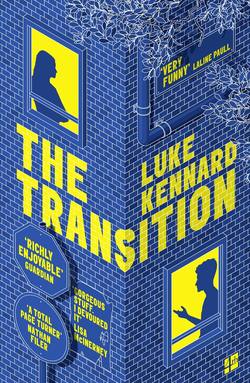Читать книгу The Transition - Luke Kennard, Luke Kennard - Страница 7
2
ОглавлениеKARL WALKED HOME through the Thompsons’ suburb. The last decade had seen the professionalisation of the amateur landlord. Entire terraces were bought up, the houses divided and divided again. Is it not time, finally, for the government to curb this rampant greed which is draining our country’s resources and disenfranchising an entire generation? an editorial would occasionally ask. In fact three administrations had tried: a certain percentage of property portfolios had to be dedicated to social housing, to key workers, to people in their thirties, but the sanctions only made the landlords, who had inherited their property portfolios from their parents, put up their rents to cover their losses. They felt their losses. Karl’s own landlord, an affable man with toothbrush hair who always wore a grey Crombie, impressed this upon him. They had school fees and gastro-holidays and multiple mortgages to pay. Families spent their money raising their children and, as the years went by, savings became the preserve of the shrinking caste who already owned several houses. The average age of leaving the parental home drifted into the early forties. For Genevieve, raised by her grandparents, several years deceased, and Karl, who was the youngest child of an older couple, his father now convalescing in sheltered accommodation, this wasn’t an option. They were living, with their two-bar heater and all-in-one toaster oven, in the former conservatory of a Victorian semi-detached villa, a shared bathroom on each floor and a sense in both their minds of having made a bad decision at some critical juncture. The conservatory’s Perspex ceiling had been wallpapered, but it was peeling at the corners and let in a nimbus of brilliant light.
Well, whatever. The fact remained they had running water, supermarkets, cinemas.
‘I mean for goodness’ sake, we’re still wealthier than ninety-seven per cent of the world’s population,’ said Genevieve, whenever Karl complained. ‘We’re still a three-per-cent leech on the side of the planet, sucking most of it dry. And you have a cold half the time. You could be the richest man in the world and you’d still spend most of the day blowing your nose and moaning about your sinuses.’
Karl sniffed.
If their generation were waiting to have kids, or perhaps electing not to have kids at all, that was all for the better. It wasn’t as though the world might run short of people. The development of a safe male contraceptive device, a tiny chip implanted in the thigh (occasionally, and in Karl’s case, without spousal accord; the doctors never asked), had its part to play in this, for sure. ‘Does any man ever really want to have children?’ its inventor asked, palms upward at a press conference. This was met with some derision. ‘Yeah, because I’ve hit a nerve,’ he said. ‘Mark my words: the languor and fecklessness of the male gender will be the salvation of the human race. There are plenty of orphans if you want to adopt.’
Karl crossed the road between two yellow sports utility vehicles and walked by the Ravencroft Community Centre which had been converted into eleven luxury condos by the Thompsons.
The Transition was founded, the notary public had explained to him, because there had been a steep increase in cases such as Karl’s. A generation who had benefited from unrivalled educational opportunities and decades of peacetime, who nonetheless seemed determined to self-destruct through petty crime, alcohol abuse and financial incompetence; a generation who didn’t vote; who had given up on making any kind of contribution to society and blamed anyone but themselves for it.
So Karl ignored the pamphleteer, a young white guy with dreadlocks who stood by a cracked bathtub on the communal green with a stack of statistics about the Thompsons’ neglect of their 700 tenants. Fronting for the Socialist Workers Party. Thompson Slumlords Extraordinaire. But as far as Karl could see, the Thompsons’ tenants had it pretty good. Fixed contracts, solid walls and ceilings.
‘I’m fine, thanks.’ He kept his hands in his pockets.
‘You’re not fine,’ said the pamphleteer as Karl walked on, ‘you’ve been conditioned into total indifference.’
‘Same thing, innit?’ said Karl.
